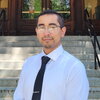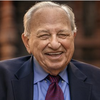Physical Chemistry
The extraordinary vigor of the graduate program in physical chemistry at the University of Illinois results from many factors:
- Enthusiastic and productive research faculty, who provide an exceptionally wide range of opportunities for PhD research
- A tradition of excellence in physical chemistry and biophysical chemistry which attracts very well-qualified graduate students and postdoctoral fellows
- A program which emphasizes research accomplishments and develops independent and successful students
- Research facilities of a quality and diversity unsurpassed by any other university
- Location in a School of Chemical Sciences having strong programs in all the major areas of chemistry as well as in Chemical Engineering
- A large number of successful alumni whose records in industry, government and academia leads employers to aggressively seek out Illinois students
- A setting in a university city, which provides a pleasant and culturally stimulating living environment, and a low cost of living.
- Interdisciplinary programs carried out in:
Center for Advanced Theory and Molecular Simulation
The National Center for Supercomputing Applications
The Beckman Institute
The Materials Research Laboratory
The Biotechnology Center
The field of physical chemistry is expanding. Many areas of science and technology use concepts and techniques developed by Illinois physical chemists, and solutions to many current problems require the efforts of talented physical chemists working in a wide variety of areas. These efforts range from studies of the solid-state to the gas phase, from laser chemistry to physiology, from the chemistry of organometallic compounds to DNA, and from synthetic chemistry to computer modeling and theoretical chemistry.
This site is designed to provide you with specific information about the graduate programs in physical chemistry and biophysical chemistry. The research activities of the various groups can be found by clicking of the faculty members' names on the various faculty lists. References to recent research publications from our laboratories have been provided to make it convenient for you to find out more about those lines of research of greatest interest to you. Further information about prospective PhD research projects can be obtained by conferences with the faculty, if you are able to visit, or by contacting individual faculty members directly. Their phone numbers are listed in the description of research interests - please, call collect!
Research in our department is widely recognized as being on the forefront of modern physical chemistry. Our faculty have won many awards and fellowships for their research, and serve as consultants for many industrial laboratories and governmental bodies, and are leaders in many aspects of the profession.
Currently about 60 graduate students, 17 postdoctoral research associates, and 8 undergraduates comprise the sixteen research groups in physical chemistry and related fields. While not the largest physical chemistry department, there are currently three winners of the National Medal of Science, five members of the National Academy of Sciences, and over sixty other major scientific awards held by our faculty, and it is the nucleus of our research students which provides the key setting for such successful programs.
We offer the close, personal associations so important in the beginning phases of research, as well as the excitement and opportunities of being a part of large and diverse teams. The long tradition of excellence in our graduate program in physical chemistry is one which all of us, faculty and students alike, are proud to maintain.
We hope this introduction to our program will be helpful to you as you approach the very important decision about where you will do your graduate work. We believe that a visit gives prospective students the best opportunity to assess our program, and we strongly encourage you to come and see us.
|
Physical Chemistry (217) 333-2556 |
Related News
- A fourth-year chemistry PhD student in Prof. Paul Braun's group, Carlos Juarez-Yescas is focusing his scientific curiosity on improving solid state batteries and becoming an experienced mentor by...
- Rudolph A. (Rudy) Marcus was a professor of chemistry at the University of Illinois Urbana-Champaign from 1964 to 1978 and received the Nobel Prize in chemistry in 1992 for contributions to the...
- In Nature, Illinois chemistry professor Prashant Jain explains "an important confounding effect" in unraveling the recent mystery surrounding LK-99, a compound of copper, lead, phosphorus and oxygen...

